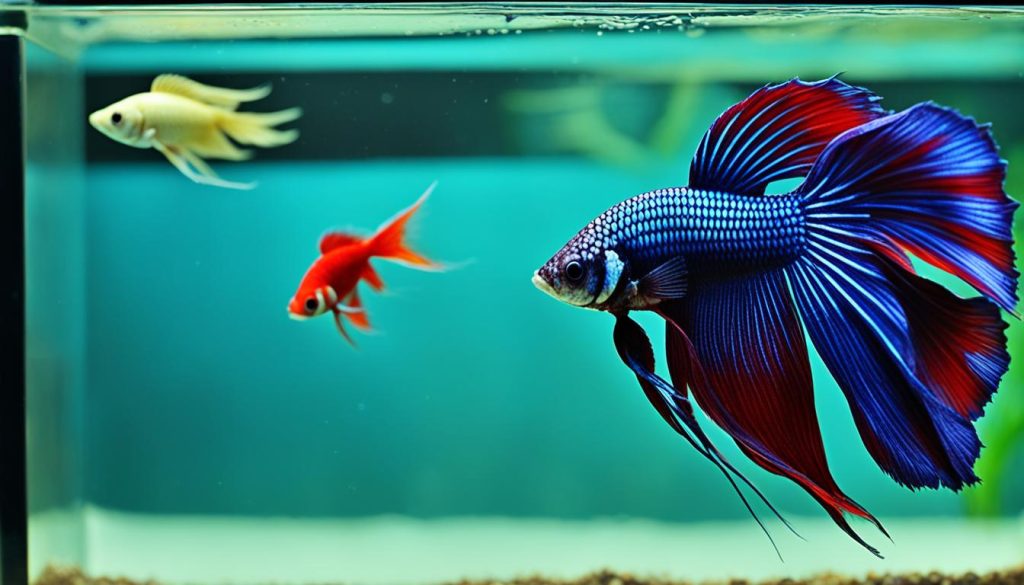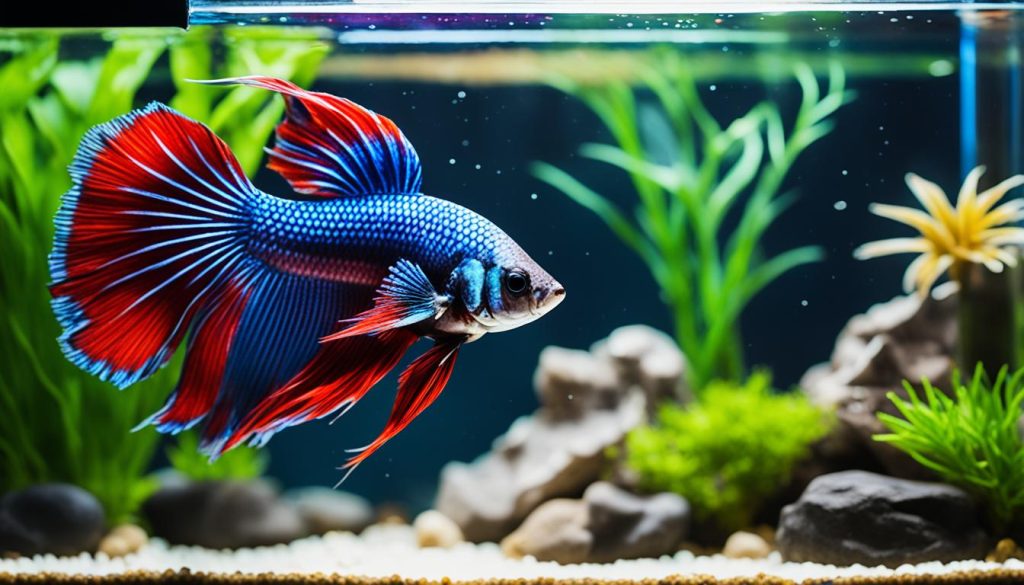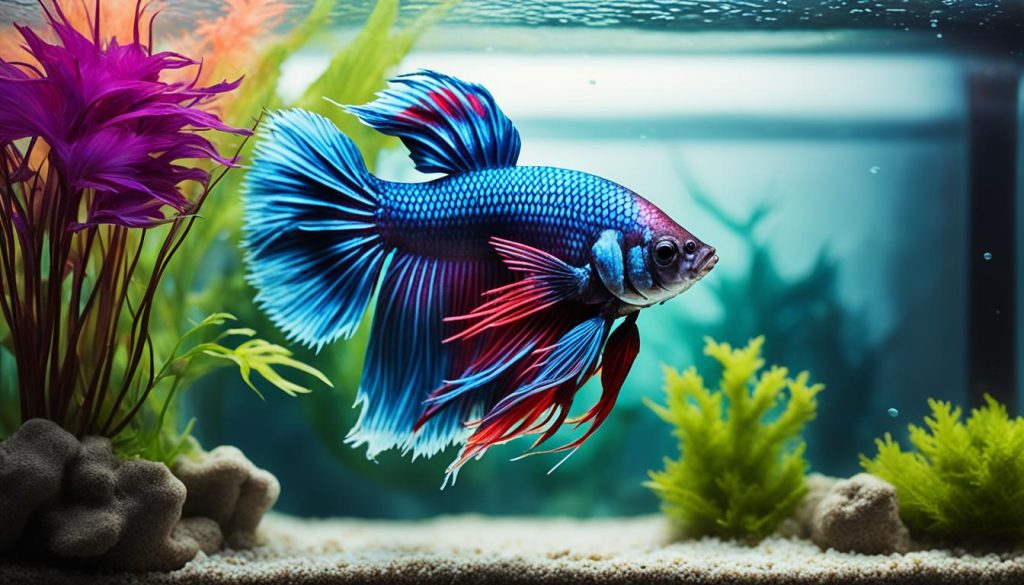How Long Do Betta Fish Live? A Comprehensive Guide
Unlock the secrets to betta fish longevity. Explore care tips to enhance your betta’s life and learn how long do betta fish live in your aquarium.

If you’re considering getting a betta fish, you may be wondering how long they live. Well, here’s a surprising statistic for you: the average lifespan of a betta fish is around 3-5 years. However, some betta fish have been known to live up to a remarkable 9-10 years in captivity!
Let’s will delve into the fascinating world of betta fish lifespan. We’ll explore the factors that can impact how long they live and provide valuable tips and care practices to help prolong their lives. Whether you’re a new betta fish owner or a seasoned enthusiast, this guide will equip you with the knowledge you need to ensure your betta fish thrives and enjoys a long and healthy life.
Understanding Betta Fish Lifespan Variability
The lifespan of betta fish can vary depending on various factors. While the average lifespan is around 3-5 years, some betta fish have been known to live up to 9-10 years in captivity. Understanding the factors that contribute to this variability is essential for providing the best care for your betta fish.
One of the key factors that can affect the lifespan of betta fish is genetics. Just like with other animals, genetic factors play a role in their overall health and longevity. Some betta fish may have better genetic traits that contribute to a longer lifespan, while others may be more prone to health issues.
Water conditions also play a significant role in betta fish lifespan. The temperature, pH levels, and cleanliness of the water can impact their health and well-being. It’s important to maintain a suitable environment for your betta fish, ensuring that the water parameters are within the optimal range and the tank is properly filtered and cleaned.
Diet and nutrition are crucial factors in the lifespan of betta fish. Providing a well-balanced and nutritious diet can support their overall health and immune system, potentially extending their lifespan. It’s important to feed them a variety of high-quality foods specifically formulated for betta fish and avoid overfeeding, which can lead to obesity and related health problems.
Stress levels can also affect the lifespan of betta fish. Like any living creature, prolonged exposure to stress can weaken their immune system and make them more susceptible to diseases. Providing a stress-free environment with suitable tank mates, appropriate hiding places, and minimizing disturbances can help reduce stress and promote a longer lifespan for your betta fish.

Key Factors That Determine How Long Betta Fish Live
Several key factors play a crucial role in determining the lifespan of betta fish. Understanding these factors will help you provide the best care for your betta fish, ensuring their health and longevity.
The Role of Genetics in Betta Fish Lifespan
The genetics of betta fish can have a significant impact on their overall health and lifespan. Just like humans, betta fish inherit certain genetic traits from their parents, which can affect their susceptibility to diseases and their ability to thrive in different environments. By understanding the genetic history of your betta fish, you can make informed decisions about their care and create a favorable environment for their well-being.
Impact of Water Conditions on Betta Fish Health
Water conditions are crucial for the health and longevity of betta fish. Optimal temperature levels, proper pH balance, and clean water are essential for their well-being. Betta fish are sensitive to temperature fluctuations and thrive in water kept between 75°F and 80°F (24°C and 27°C). Water that is too cold or too warm can lead to stress and health issues. Additionally, maintaining proper pH levels, typically between 6.5 and 7.5, is essential for a healthy betta fish habitat. Regular water changes, using a reliable water conditioner, and maintaining a clean tank environment are key to ensuring optimal water conditions for your betta fish.
Importance of Diet and Nutrition
A well-balanced diet is crucial for the health and longevity of betta fish. Feeding them a variety of high-quality foods, such as pellets, flakes, and frozen or live foods, ensures they receive the necessary nutrients. Bettas are carnivorous and require a protein-rich diet. Overfeeding can lead to obesity and related health issues, so it’s important to establish a feeding routine and provide appropriate portion sizes. Consulting with a veterinarian or experienced fish keeper can help you determine the best diet and feeding schedule for your betta fish.
How Stress Levels Affect Betta Fish
Stress can have a significant impact on the health and lifespan of betta fish. Stressors can include inadequate tank size, aggressive tankmates, poor water quality, and excessive handling. To minimize stress, provide your betta fish with an appropriate tank size and ensure they have enough space to swim and explore. Avoid housing them with aggressive tankmates that can cause harm. Maintain a clean and properly filtered tank to ensure good water quality. Lastly, minimize handling and sudden disruptions to create a calm and stress-free environment for your betta fish.

How Long Do Betta Fish Live ?
With proper care and a suitable tank environment, betta fish can live their entire lifespan in a tank. Providing optimal conditions, regular maintenance, and a well-balanced diet can help maximize their longevity.
When setting up a tank for your betta fish, it’s important to consider their specific needs. A tank size of at least 5 gallons is recommended to ensure they have enough space to swim and explore. Additionally, maintaining a consistent water temperature between 76-82°F and monitoring the pH levels in the tank are key factors in promoting betta fish health and lifespan.
Regular water changes and filtration are vital to maintain water quality and prevent the accumulation of harmful substances. Aim to change 25-50% of the water weekly to keep it fresh for your betta fish. Be sure to use a dechlorinator when adding tap water to remove any chlorine or heavy metals that could be harmful to your fish.
Feeding your betta fish a nutritious and varied diet is essential for their overall health. High-quality betta fish pellets or flakes should be the main staple of their diet, supplemented with occasional treats like frozen or live foods. It’s important not to overfeed your betta fish, as it can lead to obesity and related health issues.
In addition to providing a comfortable and nourishing tank environment, enriching your betta fish’s life with stimulation is beneficial. You can add plants or decorations to the tank to create hiding spots and encourage natural behavior. Gentle water flow from a filter or air pump can also provide exercise and mental stimulation for your betta fish.
Can Female Bettas Be Kept Together Safely?
Unlike male bettas, female bettas can usually be kept together in the same tank, especially in larger and adequately structured tanks. However, occasional conflicts and territorial aggression can still occur, so it’s crucial to monitor their interactions closely.
When introducing female bettas to the same tank, it’s essential to provide ample hiding spots, plants, and decorations. These elements help create territories within the tank, reducing the chances of aggression and providing escape options for subdominant individuals.
While female bettas generally tolerate each other, it is important to be vigilant for signs of aggression or bullying. If one female betta becomes excessively aggressive or displays consistent territorial behaviors, it may be necessary to separate and rehome the aggressive individual to maintain a peaceful environment.
Overall, with proper monitoring and appropriate tank setups, female bettas can safely coexist in the same tank, promoting social interactions and enhancing their overall well-being.
Exercise and Stimulation for a Healthy Betta Fish Life
Providing exercise and mental stimulation is important for promoting the overall health and well-being of your betta fish. While they may seem inactive at times, allowing them opportunities to move and explore can contribute to their physical and mental fitness.
One way to encourage exercise is by creating a gentle water flow in the tank. This mimics their natural environment and stimulates them to swim against it, providing a low-impact form of exercise. Additionally, the presence of ornaments or toys in the tank can offer opportunities for exploration and play, keeping your betta fish mentally stimulated.
It’s recommended to place the ornaments or toys strategically in the tank, ensuring that they don’t obstruct the swimming space or pose any risks to your betta fish’s safety. By introducing these elements, you can create an enriching environment that encourages your betta fish to engage in activities that promote their physical and mental well-being.
Remember to monitor your betta fish during exercise and stimulation sessions to ensure they are comfortable and not experiencing any distress. Pay attention to their behavior and make adjustments as needed to create a balanced and enjoyable environment for them.
How to Respond to Betta Fish Health Concerns?
When it comes to the health of your betta fish, quick and appropriate responses to any concerns are essential. Betta fish health concerns, such as illness or injury, should never be ignored. By promptly recognizing signs of illness, seeking professional veterinary care, and providing necessary treatments, you can ensure the well-being of your beloved betta fish and potentially extend their lifespan.
Regular monitoring and observation are key in catching health issues early on. Pay close attention to any changes in behavior, appetite, or appearance. If you notice unusual changes, such as lethargy, loss of appetite, discoloration, or abnormal growths, it’s important to take action.
Consulting a veterinarian with expertise in betta fish health care is crucial. They can provide accurate diagnosis, offer appropriate treatment options, and guide you in maintaining optimal care for your betta fish. Professional advice ensures that you are equipped with the knowledge and resources to address any health concerns effectively.
Remember, proactive care and timely intervention can make a significant difference in the health and longevity of your betta fish. By staying vigilant and taking necessary steps to respond to health issues promptly, you can provide the best possible care for your betta fish
FAQs on How long do betta fish live
What factors determine the lifespan of betta fish?
Several factors contribute to the lifespan of betta fish, including genetics, water conditions, diet and nutrition, and stress levels.
How can I prolong the life of my betta fish?
Providing optimal care includes creating a suitable habitat, regular cleaning and water maintenance, and proper feeding techniques.
Are betta fish hard to keep alive?
While betta fish are hardy, proper care is necessary to keep them alive and healthy, including recognizing common diseases and avoiding overfeeding.
How long do betta fish live in a tank?
With proper care and a suitable tank environment, betta fish can live their entire lifespan in a tank.
What is the lifespan of a betta fish in a bowl?
Keeping betta fish in a bowl can significantly impact their lifespan. It is recommended that a more spacious and properly maintained tank environment be provided.
Can male bettas be kept together?
Male bettas should be kept apart to prevent harm and aggression, while female bettas can typically be kept together with occasional conflicts.








